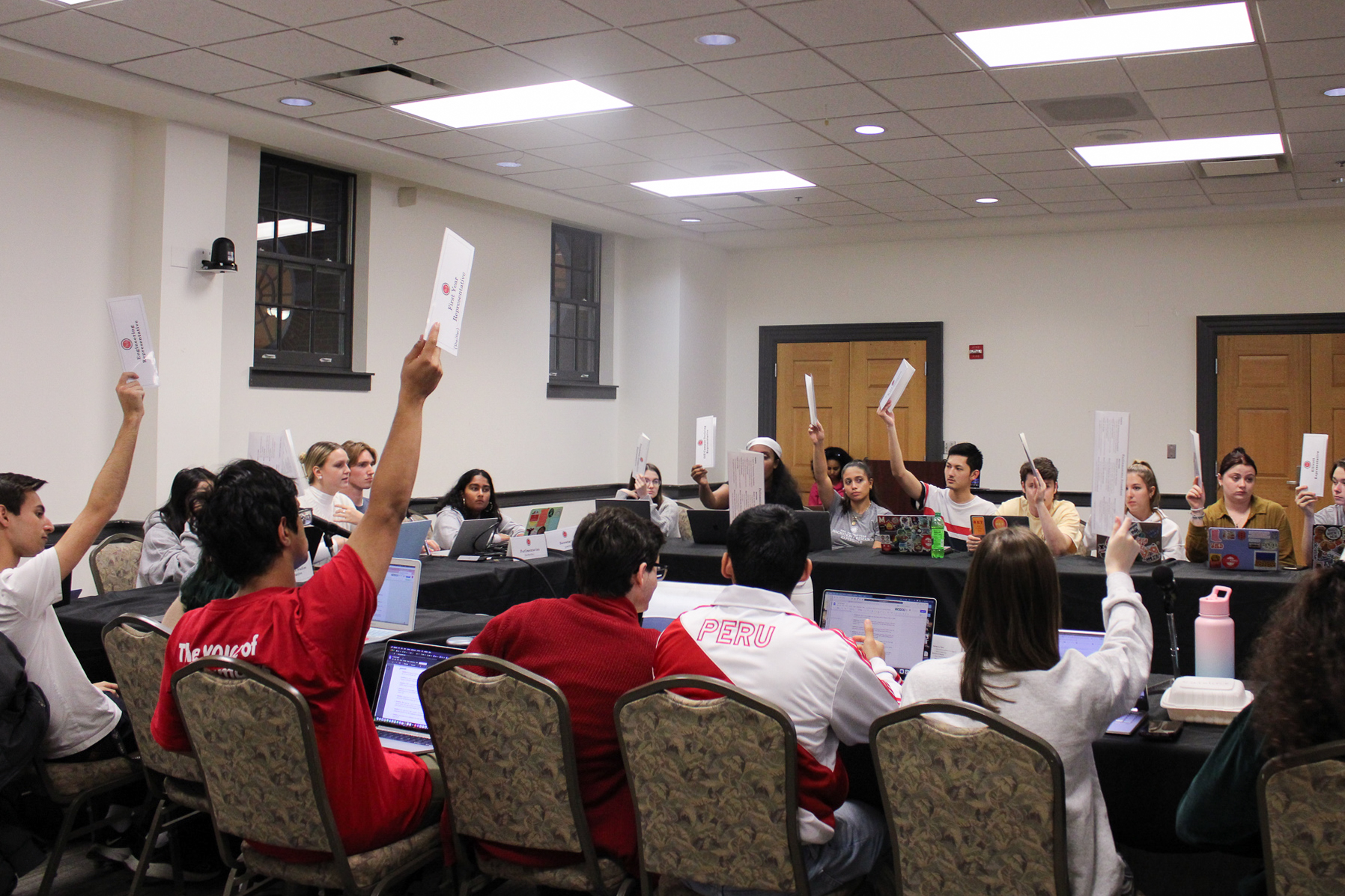University Counseling Center Director Dr. Chetan Joshi discussed mental health care accessibility, fees and advertising with SGA legislators during their Wednesday meeting.
Each student now pays a mental health fee of $15 per year, Joshi said, bringing in more than $500,000 for the Counseling Center this year. This fall was the first time revenue came in from this fee.
Joshi’s goal is for this money to go toward hiring four initial access clinicians and one communications officer for the Counseling Center. These initial access clinicians will conduct brief assessments to students when they first interact with the Counseling Center to determine what kind of support will best fit their needs.
But Joshi added that the Counseling Center has had trouble hiring people to fill new roles. The process of finding new professionals to work at the Counseling Center has been “extremely slow.”
The center made several hires in the past week, including initial access clinicians. Joshi hopes the rest of the positions will be occupied by the end of the semester.
Several Student Government Association legislators voiced concerns about students having ample access to the services they need.
[Graduate students at UMD join national movement for reproductive justice]
Joshi reassured students there is an after hours crisis support phone number students can call on evenings and weekends. If students are having an emergency while the Counseling Center is open, they can have an emergency same-day visit instead of scheduling an intake appointment further in advance.
South Campus Commons representative Mallory Van Dyke asked Joshi how the Counseling Center is working on making students aware of the resources they offer.
Joshi acknowledged students often do not know what resources are available to them. The Counseling Center already works on marketing itself. but Joshi asked students to come to him if they have ideas as to how to better promote the Counseling Center’s work.
Joshi told the SGA he also meets regularly with student body president Ayelette Halbfinger, the directors of the SGA’s Health and Wellness Committee and other student groups.
“I have a certain perspective but it very much needs to be informed by the perspective of all of you and of the students,” Joshi told the legislators.
[SGA discusses bills on mental health absences, drink testing kits]
During their meeting, the SGA also passed several bills including a bill calling for language in the University Health Center’s self-excused absence form to be revised so it is clear mental health illnesses are included in medically necessitated absences.
Another bill passed will fund the SGA’s purchase of drink testing strips for date rape drugs. The SGA will coordinate with various bodies on campus such as Stamp Student Union and the health center to arrange the distribution of these test kits. According to the Maryland Coalition Against Sexual Assault, about 18 percent of sexual assaults of college-aged women involve drugs or alcohol and another 28 percent involve the victim being unable to consent due to drugs or alcohol — issues the SGA is hoping to help address through this initiative.
The SGA also voted to pass a bill funding a pilot program to expand gender-affirming care in the health center through the purchasing of chest binders and TransTape.



